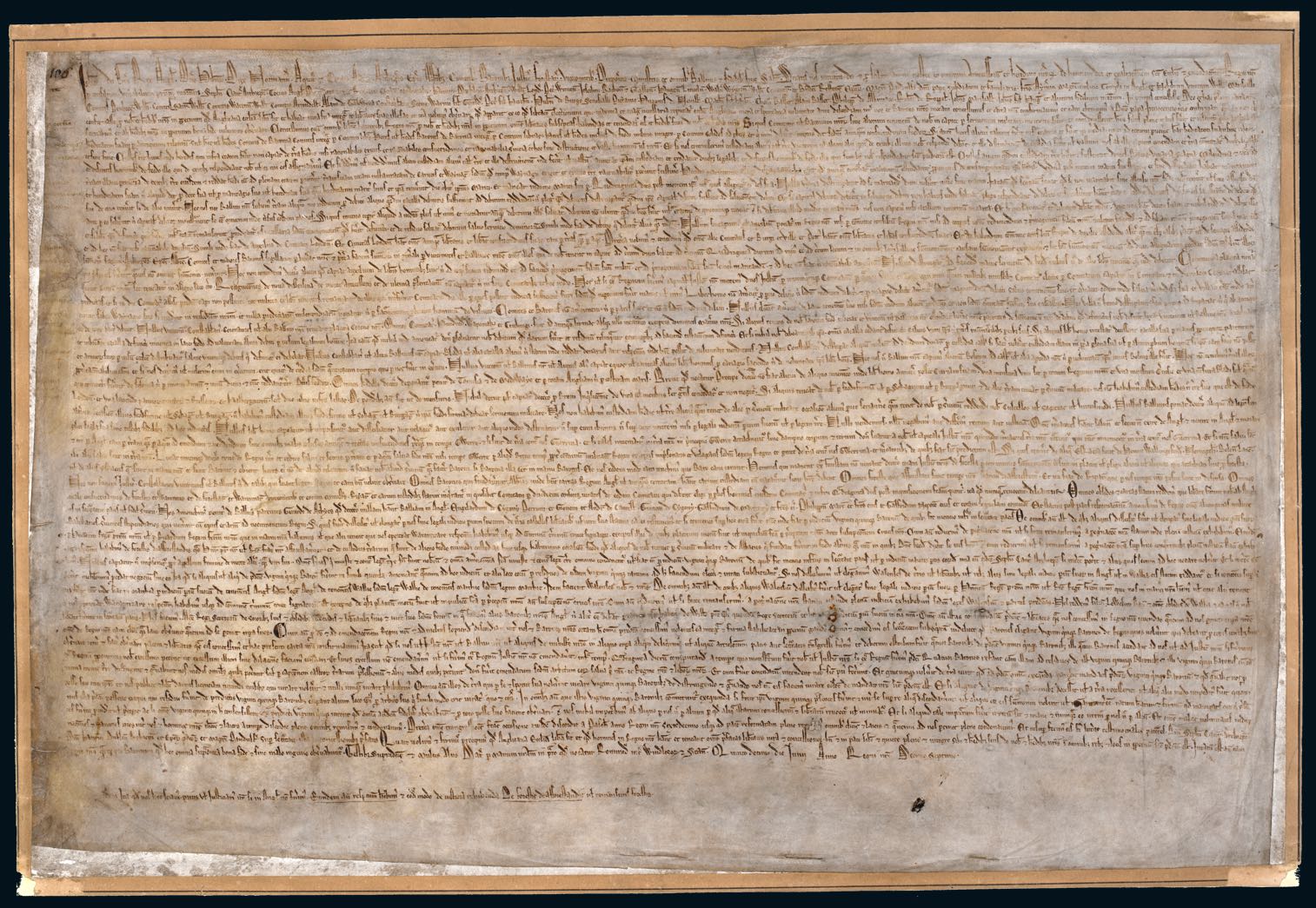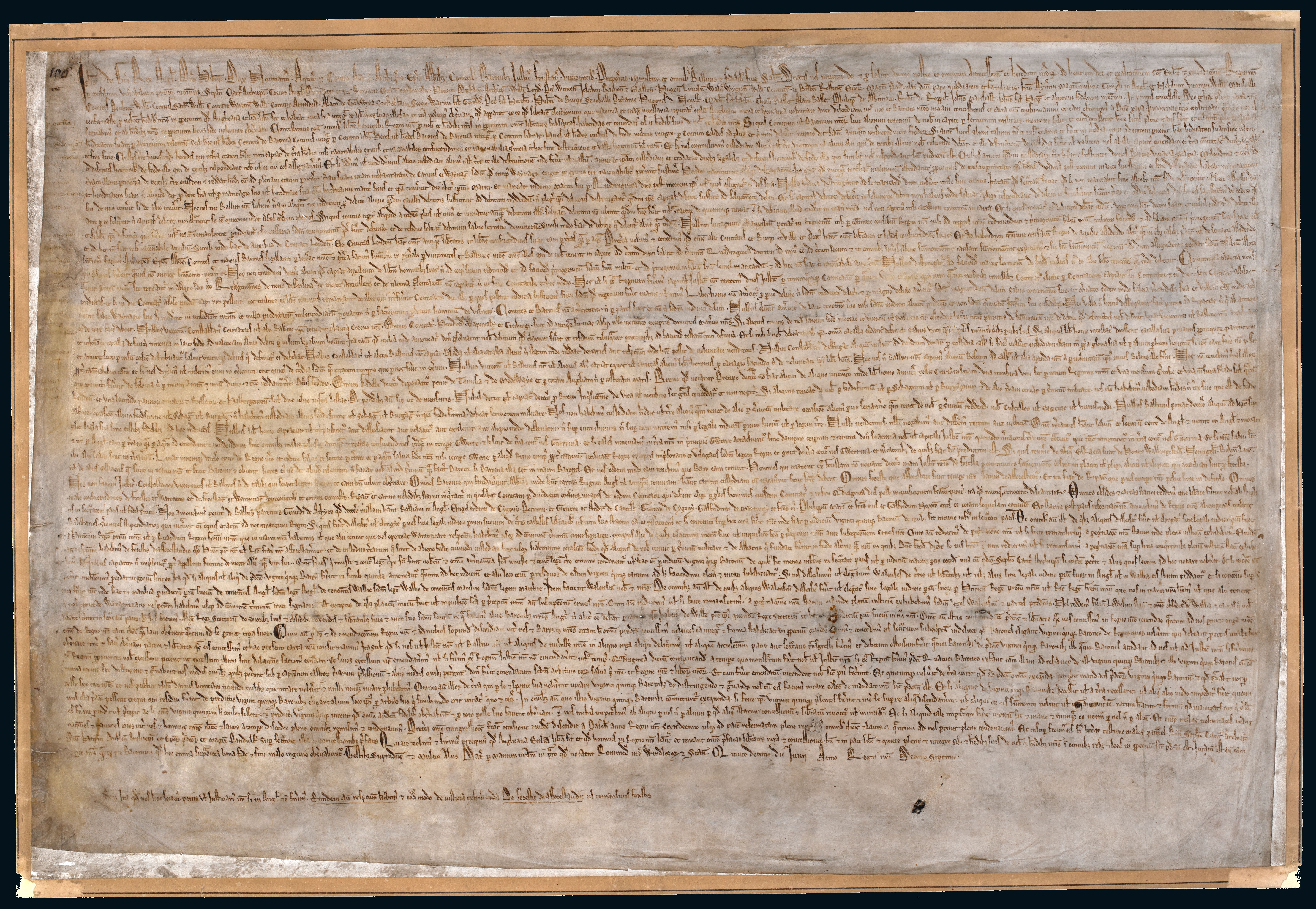
Liceat unicuique de cetero exire de Regno nostro et redire salvo et secure, per terram et per aquam salva fide nostra nisi tempore gwerre per aliquod breve tempus propter communem utilitatem Regni, exceptis imprisonatis et utlagatis secundum legem Regni et gente de terra contra nos gwerrina, et mercatoribus de quibus fiat sicut praedictum est.
In future it shall be lawful for any man to leave and return to our kingdom unharmed and without fear, by land or water, preserving his allegiance to us, except in time of war, for some short period, for the common benefit of the realm. People that have been imprisoned or outlawed in accordance with the law of the land, people from a country that is at war with us, and merchants - who shall be dealt with as stated above - are excepted from this provision.
